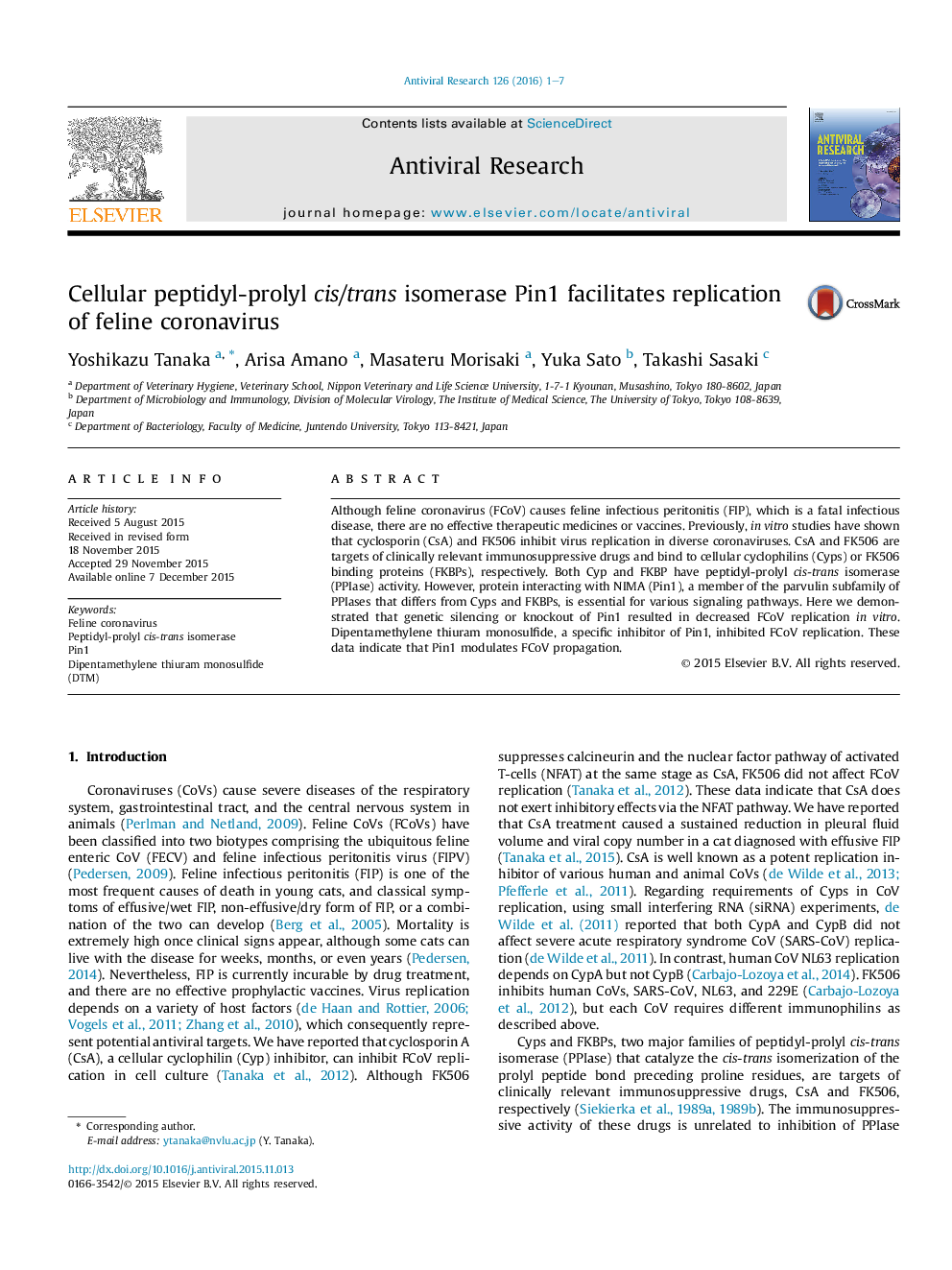| کد مقاله | کد نشریه | سال انتشار | مقاله انگلیسی | نسخه تمام متن |
|---|---|---|---|---|
| 5821794 | 1557817 | 2016 | 7 صفحه PDF | دانلود رایگان |
- Pin1 facilitates FCoV replication in vitro.
- RNA interference experiments for Pin1 reduced FCoV replication and viral protein expression.
- The Pin1 inhibitor DTM results in the reduction of FCoV replication and protein expression.
- Knockout of the Pin1 gene inhibits FCoV replication and protein expression.
Although feline coronavirus (FCoV) causes feline infectious peritonitis (FIP), which is a fatal infectious disease, there are no effective therapeutic medicines or vaccines. Previously, in vitro studies have shown that cyclosporin (CsA) and FK506 inhibit virus replication in diverse coronaviruses. CsA and FK506 are targets of clinically relevant immunosuppressive drugs and bind to cellular cyclophilins (Cyps) or FK506 binding proteins (FKBPs), respectively. Both Cyp and FKBP have peptidyl-prolyl cis-trans isomerase (PPIase) activity. However, protein interacting with NIMA (Pin1), a member of the parvulin subfamily of PPIases that differs from Cyps and FKBPs, is essential for various signaling pathways. Here we demonstrated that genetic silencing or knockout of Pin1 resulted in decreased FCoV replication in vitro. Dipentamethylene thiuram monosulfide, a specific inhibitor of Pin1, inhibited FCoV replication. These data indicate that Pin1 modulates FCoV propagation.
Journal: Antiviral Research - Volume 126, February 2016, Pages 1-7
